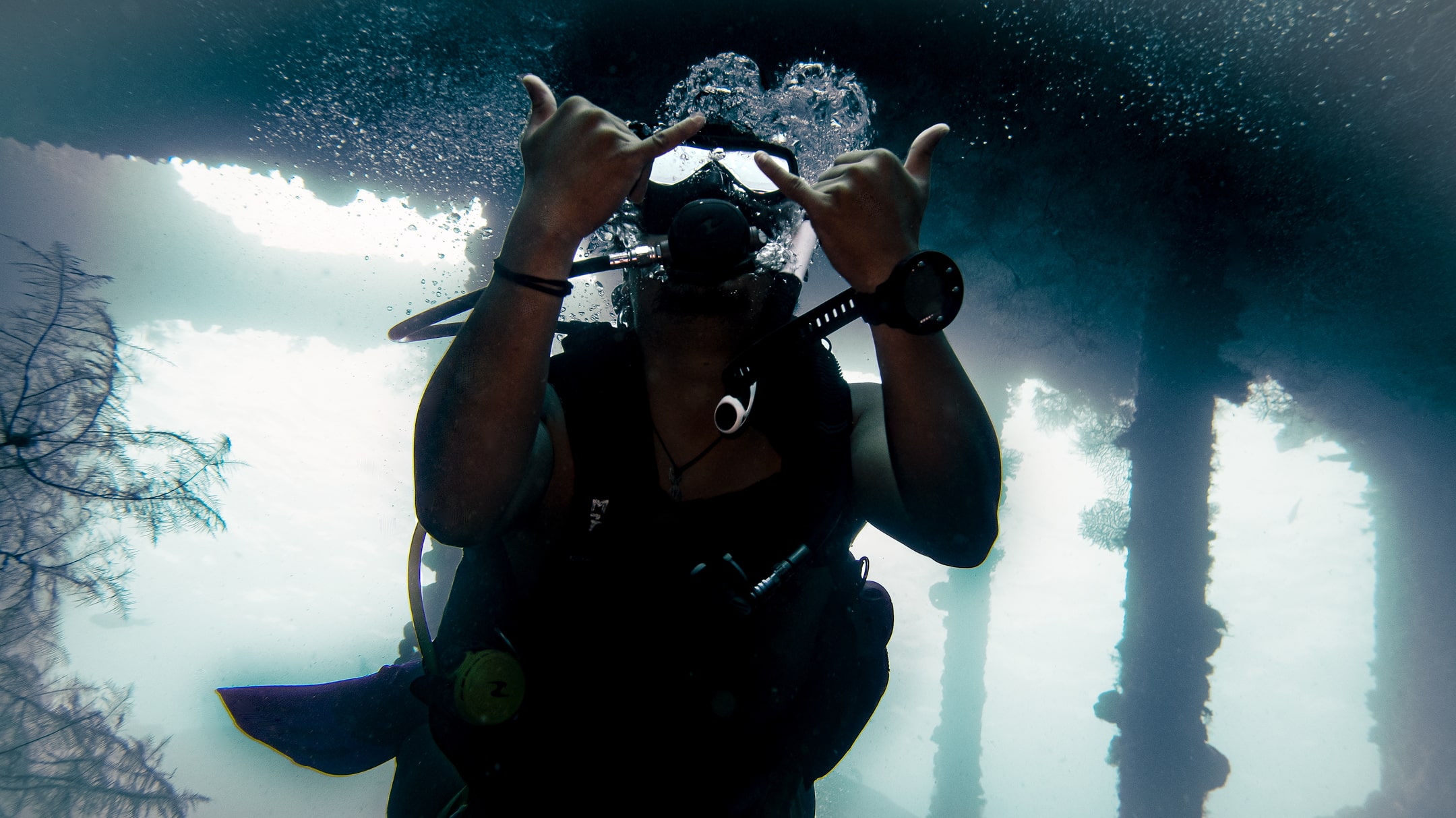Scuba diving is becoming a popular hobby.
It offers the unique experience of watching marine life from up close, and feeling weightlessness underwater. In addition, the costs associated with renting diving equipments and hiring instructors are becoming more affordable.
It’s no wonder that many people are trying it out for the first time, and Bali is one of the many places in Indonesia that never runs out of diving sites to explore.
You might still have some doubts about scuba diving, so here we break down the common concerns a first-timer might have.
The location of Bali’s best sites for divers
Bali’s northern and north-eastern coasts are prime locations for scuba diving for beginners. They are not close to Ngurah Rai International Airport, so you must make sure your diving agents provide accommodation for you. Southern and south-western coasts are more commonly known for surfing, so most dive shops don’t typically take you there.
Learn the basics of swimming
The full scuba gear set is typically equipped with a buoyancy compensator device (BCD) that helps you balance between floating and sinking. Your fins do most of the maneuver work. However, for safety reasons, you must be sure that you are comfortable floating in deep water. If you can’t swim with the proper techniques, at least know how to propel yourself on the surface of the water.
Learn to breathe underwater
For some people, it’s unnatural to breathe through the mouth, from a mouthpiece. If you find this difficult, we suggest that you practice with snorkel gear. While snorkeling, you can learn how to breathe deeply against water pressure around your chest, at surface level water.
Another important skill to develop is equalizing. This compensates the pressure inside your ear-mouth channel and prevents injury to the eardrums as you move deeper.
Keep having comforting thoughts
If you rarely swim or snorkel in the sea, then scuba diving can be way outside your comfort zone. You should clear out your misconceptions about the sea.
Don’t worry too much about being attacked by sea animals, or getting carried off by currents. The chance of these happening is very small. If you listen to your diving instructor, you can avoid taking unnecessary action that poses harm on the wildlife, other divers, and yourself.
Practice using your gear effectively
Pay attention to small details, like tying up your hair if you have long hair. Loose strands of hair that get in the way of your vision, or create small leaky gaps in the mask can be frustrating.
Learn to read pressure and depth gauges, and learn to adjust the BCD to control your buoyancy. You might feel overwhelmed at first about the technicalities, but in reality, learning to scuba dive is as easy as driving a car – if not easier.
Be patient with yourself
When you have completed your practice session in a shallow pool, have learned to adjust your gear, and learned to communicate various signaling gestures, it’s totally normal to forget about them all once you actually hit the open water.
The weightlessness, breathing underwater, feeling the cold sensation around your body, not being able to see the sea floor, and entering an entirely different, alien world – your brain works so hard at processing all of these novel stimuli that you might be distracted at first.
So be patient with yourself, trust your instructor, but more importantly, trust yourself.
Try scuba diving at Blue Season Bali. Our super short course caters for all ages. For children below 10 years, we offer firsthand experience of breathing with scuba equipments in a diving pool. Within hours, you can explore Tulamben, Padang Bai, or Sanur – three of the top-rated diving sites in Bali. If scuba diving is right for you, what was a once-in-a-lifetime experience will become a lifetime hobby.




